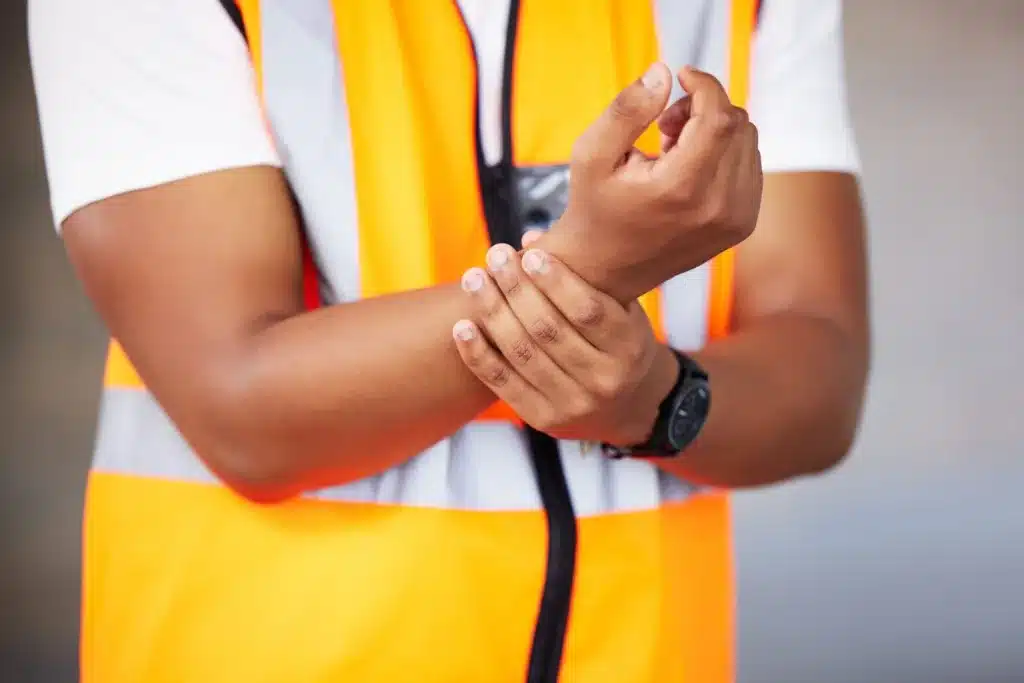What Benefits Are Available to Workers Who Were Injured on the Job in Florida?
Getting hurt at work can be a challenging and stressful experience. Fortunately, Florida’s workers’ compensation system is designed to provide financial and medical support to employees who suffer work-related injuries. Understanding the benefits you’re entitled to is crucial for ensuring you receive the compensation you need to recover and get back on your feet after an accident.
1. Medical Benefits
One of the most immediate and critical needs after a workplace injury is medical care. Workers’ compensation will likely cover all necessary medical treatments related to your injury, including:
- Doctor Visits: Coverage for appointments with authorized physicians, including specialists if needed.
- Hospital Stays: Payment for hospital treatment, including surgeries, emergency room visits, and inpatient care.
- Prescription Medications: Coverage for medications prescribed by your treating physician.
- Physical Therapy and Rehabilitation: If your injury requires ongoing therapy or rehabilitation services, these are covered under workers’ compensation.
- Medical Equipment: Necessary medical devices or equipment, such as crutches, wheelchairs, or prosthetics, are provided at no cost to you.
Ensuring that you receive the appropriate medical treatment is the foundation of your recovery process. After addressing your medical needs, it’s essential to consider the financial impact of your injury, which is where wage replacement benefits might come into play.
Beliza Bueno
RTR Law Firm provides excellent service and support throughout Workers Comp and personal injurry cases. The staff is very knowledgeable, attentive, and always available to address concerns. They make the entire process smooth and stress-free. I’m very satisfied with the outcome and highly recommend their services!
2. Wage Replacement Benefits
If your injury prevents you from working, workers’ compensation provides wage replacement benefits to help you manage financially during your recovery. The type and amount of wage replacement benefits you receive depend on the severity and duration of your injury:
- Temporary Total Disability (TTD): If you are completely unable to work due to your injury, TTD benefits provide 66 2/3% of your average weekly wage. These benefits are available for up to 260 weeks or until you reach maximum medical improvement (MMI).
- Temporary Partial Disability (TPD): If you can return to work in a limited capacity but earn less than 80% of your pre-injury wages, TPD benefits can help bridge the gap. You’ll receive a percentage of the difference between your current earnings and your pre-injury wage.
- Permanent Impairment Benefits (PIB): If your injury results in a permanent impairment, you may be eligible for PIB. The amount you receive is based on your impairment rating, which is determined by a physician.
- Permanent Total Disability (PTD): If your injury permanently prevents you from working in any capacity, you may qualify for PTD benefits. These benefits provide wage replacement through the age of 75, typically at the same rate as TTD benefits.
3. Death Benefits
In the tragic event that a work-related injury or illness results in death, workers’ compensation provides death benefits to the surviving dependents. These benefits typically include:
- Funeral Expenses: Coverage for funeral and burial costs up to $7,500.00.
- Survivor Benefits: Ongoing financial support for the deceased worker’s spouse, children, or other dependents. The amount and duration of these benefits depend on the number of dependents and their relationship to the deceased.
Understanding these benefits ensures that your family is protected in the event of a worst-case scenario. However, to access any of these benefits, it’s essential to know the steps to take immediately after a work-related injury.
How Can You Ensure That You Receive All of the Benefits You Deserve?
Navigating the workers’ compensation process can be complex, especially when you’re focused on recovering from an injury. To ensure you receive the full benefits you’re entitled to, it’s important to take the following steps:
- Report the Injury Promptly: Notify your employer of your injury as soon as possible. In Florida, you must report your injury within 30 days to avoid losing your benefits.
- Seek Medical Treatment Immediately: Get medical attention right away and follow your doctor’s instructions. Document all treatments, diagnoses, and medical recommendations.
- File a Workers’ Compensation Claim: Your employer is responsible for filing your claim with their insurance company. Make sure this is done promptly and accurately.
- Consult with a Workers’ Compensation Attorney: If you encounter any issues with your claim, or if your benefits are denied or delayed, consulting with an experienced workers’ compensation attorney can help protect your rights and ensure you receive the compensation you deserve.
Taking these steps early can significantly affect the outcome of your claim. With a solid understanding of the process and the benefits available, you can better protect your rights and ensure you receive the compensation you deserve.
Protecting Your Rights After a Work Injury in Florida
Being injured at work can have a significant impact on your life, but knowing the benefits you’re entitled to can make a significant difference in your recovery. Florida’s workers’ compensation system is designed to support injured workers through medical benefits, wage replacement, and vocational rehabilitation. However, navigating this system can be challenging, and it’s essential to understand your rights and the steps to take to secure your benefits.
If you’ve been injured at work and need assistance with your workers’ compensation claim, RTRLAW can help. Our experienced and dedicated attorneys can guide you through the process, advocate for your rights, and work to ensure you receive the full benefits you’re entitled to under Florida law.
For more information or to schedule a consultation, contact RTRLAW today. Our team is committed to helping you navigate the complexities of workers’ compensation and will work hard to secure the support you need to recover and move forward after a workplace accident.


 CALL US NOW
CALL US NOW TEXT US NOW
TEXT US NOW



























